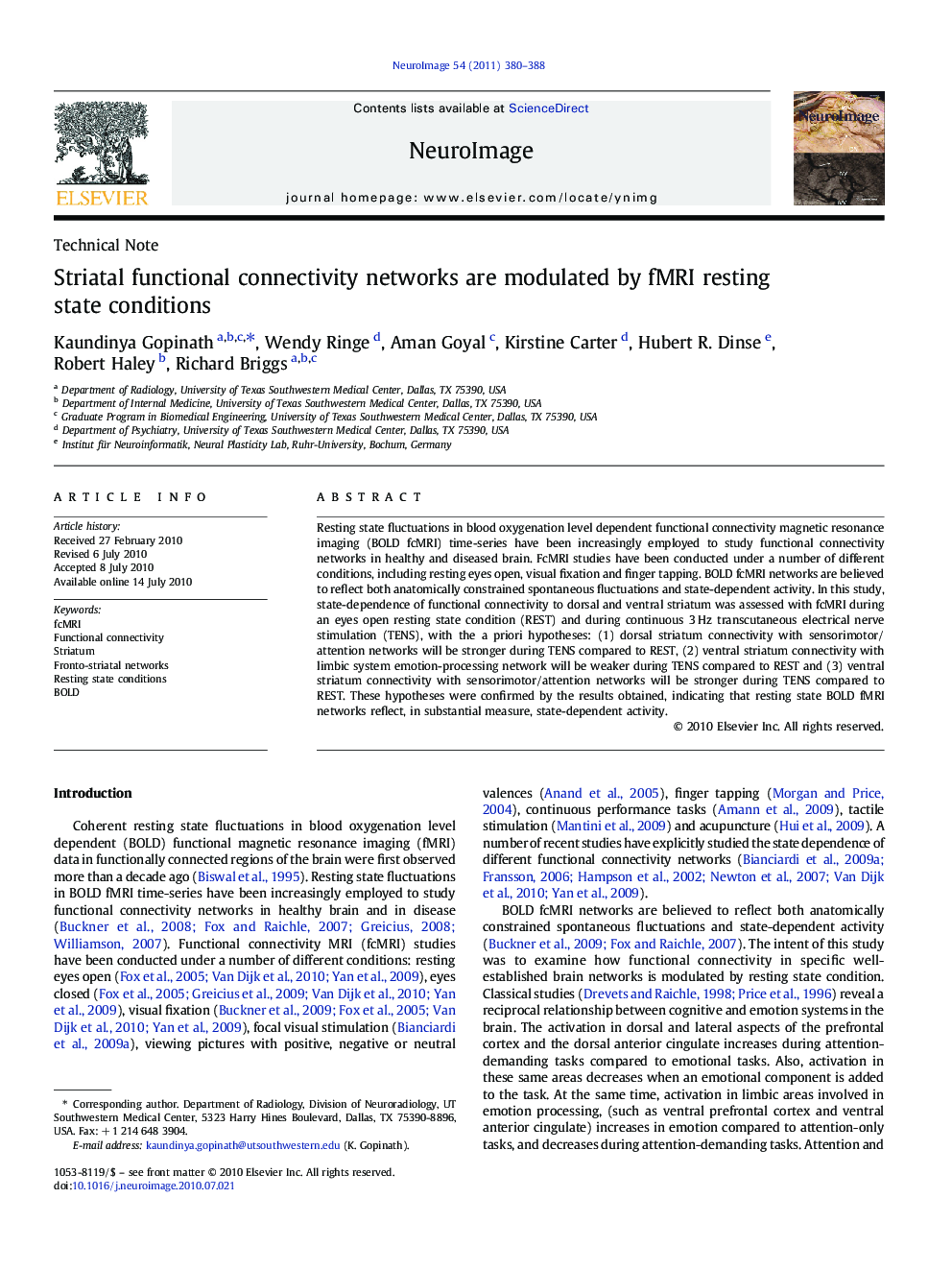| Article ID | Journal | Published Year | Pages | File Type |
|---|---|---|---|---|
| 6033950 | NeuroImage | 2011 | 9 Pages |
Resting state fluctuations in blood oxygenation level dependent functional connectivity magnetic resonance imaging (BOLD fcMRI) time-series have been increasingly employed to study functional connectivity networks in healthy and diseased brain. FcMRI studies have been conducted under a number of different conditions, including resting eyes open, visual fixation and finger tapping. BOLD fcMRI networks are believed to reflect both anatomically constrained spontaneous fluctuations and state-dependent activity. In this study, state-dependence of functional connectivity to dorsal and ventral striatum was assessed with fcMRI during an eyes open resting state condition (REST) and during continuous 3Â Hz transcutaneous electrical nerve stimulation (TENS), with the a priori hypotheses: (1) dorsal striatum connectivity with sensorimotor/attention networks will be stronger during TENS compared to REST, (2) ventral striatum connectivity with limbic system emotion-processing network will be weaker during TENS compared to REST and (3) ventral striatum connectivity with sensorimotor/attention networks will be stronger during TENS compared to REST. These hypotheses were confirmed by the results obtained, indicating that resting state BOLD fMRI networks reflect, in substantial measure, state-dependent activity.
